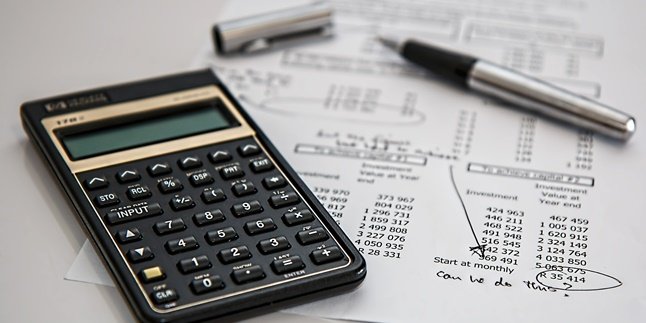Kapanlagi.com - Efficiency may already be a familiar term for most people. We often encounter this word in our daily lives, usually when doing a job. It is reasonable, because efficiency is an important key that can make work smoother. By doing work efficiently, the results obtained will also be more optimal and satisfying.
Although it is already a common term, the fact is that many people still do not understand what efficiency is and what its concept is like. In fact, learning the concept of efficiency can greatly help someone in completing tasks and overcoming problems in life. Therefore, it is important to understand the definition of efficiency and its application in daily life.
Summarized from liputan6.com, here is a review of how efficiency is an important step in working.
1. Definition of Efficiency

(credit: unsplash)
In the Indonesian Dictionary (KBBI), the meaning of efficiency is the accuracy of the method (effort, work) in carrying out something (without wasting time, energy, cost). In addition, KBBI also explains other terms for efficiency, namely usefulness; appropriateness, or skillfulness.
According to the Economic Dictionary (2003), efficiency is defined as the relationship or comparison between the output or results of goods and services produced with the scarce inputs in units of work or the determination of the method (effort, work) in doing something (without wasting time, energy, and cost).
Not far from the meaning in KBBI and the economic dictionary, several experts also give their opinions on the definition of efficiency. One of them, Mulyamah, mentions that efficiency is a measure for comparing a plan in the use of input or resources with the actual realization or use.
Meanwhile, according to S. P. Hasibuan, efficiency is the best comparison between input and output or the results of profits with the resources used. In this case, the best possible results that can be achieved will be compared with limited resources.
2. Types of Concepts in Efficiency

(credit: unsplash)
Understanding what efficiency is will not be enough if it is only limited to its understanding. Because in efficiency there are several types of concepts that must also be understood. Some types of concepts in efficiency are as follows.
1) Optimal Efficiency
Optimal efficiency is the best comparison between sacrifices made to achieve maximum or desired results. In the world of work, optimal efficiency can be done with two considerations, namely based on results and savings.
For example, optimal efficiency in terms of results is when a manager tries to achieve a higher output compared to the input (labor, money, time, and materials) used. Meanwhile, an example of optimal efficiency in terms of savings is the use of modern equipment so that the work process will be faster and save time and costs.
2) Efficiency with Benchmark
Efficiency with a benchmark means a comparison between the minimum specified result and the actual achieved result. This means that efficiency can be achieved if the actual result is greater than the minimum specified number.
For example, worker A can lay around 200 bricks per day for 8 hours. While worker B can lay around 300 bricks per day for 8 hours. So, the ability of workers to achieve predetermined results within a certain period of time becomes the key to the efficiency of this type.
3) Efficiency with Break-Even Point
Efficiency with break-even point is a type that is quite often used in the business field. The concept of break-even point in this efficiency is the boundary point between efficient and inefficient business. With this point, a business can be said to be efficient when it can generate more than the break-even point.
3. The Purpose of Efficiency

(credit: unsplash)
Efficiency is important in carrying out work and running a business or enterprise. In general, the purpose of efficiency is to achieve maximum profit with minimal effort. But beyond that, there are still several objectives of efficiency that can be outlined. The following are some objectives that can be achieved with efficiency.
1) Achieving a result or goal as expected or planned.
2) Saving or reducing the use of resources in carrying out activities.
3) Maximizing the potential profits that can be obtained.
4) Maximizing the use of all available resources so that nothing is wasted.
5) Improving the performance of a work unit so that the results or outputs are maximized.
4. Conditions for Achieving Efficiency

(credit: unsplash)
To achieve the goals of efficiency, it turns out there are several conditions that must be fulfilled. In addition, these efficiency requirements can also serve as a reference for someone in carrying out effective and impactful efficiency. The conditions for achieving efficiency are as follows.
1) Proper management usage.
2) Clear division of work.
3) Rationality of authority and responsibility.
4) Mechanism or system that can automatically adjust to the conditions.
5) Use of tools that have been adjusted and can be exchanged with each other.
6) Economical. Achieving high-quality input with minimal effort.
7) Practical and non-complex work procedures.
8) Achieving results and benefits. For example, producing goods that are beneficial to society.
Those are some explanations regarding the understanding that efficiency is important in obtaining maximum results. Hopefully, it is useful and can increase knowledge.
(kpl/gen/psp)
Disclaimer: This translation from Bahasa Indonesia to English has been generated by Artificial Intelligence.
















